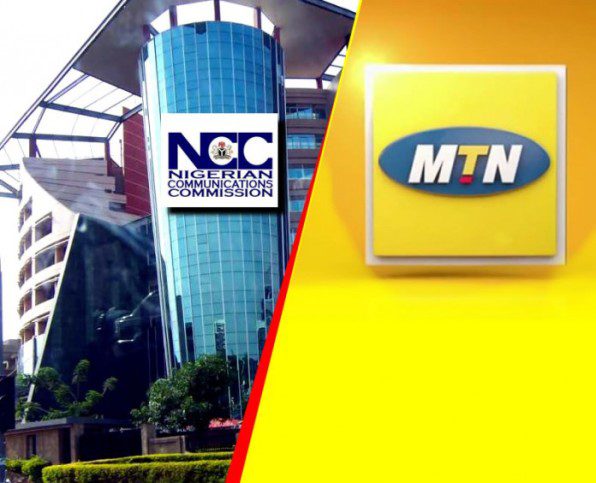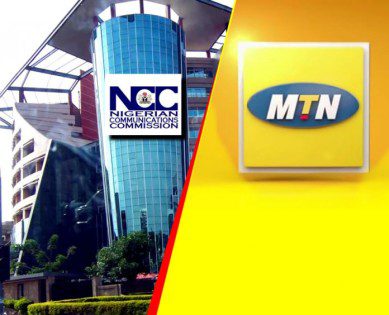Global Issues
Taming The MTN Shrew -By Lekan Sote


All is well that ends well. Finally, the Federal Government of Nigeria found a way to tame the MTN Nigeria shrew that has now offered to settle the legal suit it filed against the Nigerian Communications Commission out of court. This must have come from the recent behind closed doors “whisper” that MTN’s management had with the Minister of Communications, Adebayo Shittu.
According to reports by Reuters international news agency, MTN had apologised to the NCC, admitted its error in failing to disconnect unregistered SIM cards, and was willing to pay the fine. Also, top guns of MTN in Nigeria and South Africa were compelled to resign, as trading of its stock, whose value took a dive, was temporarily suspended on the Johannesburg Stock Exchange. By the way, no telecommunications company is listed on the Nigerian Stock Exchange.
The NCC had requested telecoms in Nigeria to register mobile telephone SIM cards, to compile bio data and other details of the owners, for security purposes. The telcos, including MTN, seemed to have complied. Or so everyone thought. But alas, the records were not faithfully archived, or something like that. MTN had either failed to register, disconnect unregistered, or lost the data, of about 5.1 million subscribers.
Many currently undergoing the registration or reregistration complain loudly that this will be the second or third time of registering their SIM cards. Other networks, that some claim allegedly stoked the embers of the NCC punitive fire to gnaw at the 60 per cent market share of MTN, were culpable too, though to a lesser extent.
The NCC threw a $1,008 or N200,000 fine at MTN for each unregistered SIM card; a total of $5.2bn. But it appears that MTN regarded the NCC’s downward review of the fine to $3.9bn, and the shifting of the initial two-week payment deadline of the fine from November 16 to December 31, 2015, as a blink of weakness.
While the other networks paid without protest, MTN turned around to file a suit against the NCC, citing Section 70 of the NCC Act, and appealed to some flimsy wide-of-the-mark authorities in Sections 1(3), 4 and 6 of Nigeria’s Constitution. MTN argued that the NCC had usurped some legislative powers and judicial powers of the National Assembly and the courts respectively. Now that they may settle out of court, one may never know what the courts would make of the flippant drivel. Some mischievous people contend that MTN went to court to avoid being shut down by the NCC. Well.
A boastful MTN allegedly said: “All factors having a bearing on the matter have been thoroughly and carefully considered, including a review of the circumstances leading to the fine and the subsequent letters received from the NCC. MTN Nigeria, acting on legal advice, has resolved that the manner of the imposition of the fine and the quantum is not in accordance with the NCC powers under the Nigerian Communications Act, and therefore there are valid grounds upon which to challenge the fine.” Except for evangelists, none can sell hopes more than lawyers!
Some say MTN wanted to use the pliable Nigerian legal system to stall, until President Muhammadu Buhari and the NCC Executive Vice-Chairman, Prof Umar Dambatta, leave office. There are also unproved allegations that some intermediaries were going round media houses with “incentives” to either canvass a cancellation of the fine or “kill” stories related to it altogether.
Still waxing cocky, while yet buying up, and inheriting the customer base of, Visafone telephone network, MTN threatened to withdraw from Nigeria, and expand to other African countries. It should have. MTN will be the first to acknowledge that mobile telephone lines in Nigeria are in excess of 152 million units – about three times the 53 million population of its home country, South Africa, as generously projected by the United Nations for 2016.
MTN earns about 40 per cent of its global revenue in Nigeria, and there is speculation that its profit after tax for year ending December 31, 2015 should be about $955m or N1.9tn, if you convert by the N197.50 Central Bank of Nigeria official rate of exchange. If you convert with the black market rate that is in excess of N300, you will know that this is not small potatoes.
MTN’s South African proprietors who were initially conciliatory and polite, and anxiously angling to engage the Nigerian authorities in some kind of business diplomacy, also became combative and pompous. They alleged that the NCC acted in bad faith. MTN was no doubt, goaded by some with arguments like even the revised fine of $3.9m is more than double the average annual capital investment MTN has made in Nigeria in the last five years. What that argument is supposed to achieve is not so clear.
Gbenga Adebayo, Chairman, Association of Licensed Telecommunications Operators of Nigeria, thinks the fine “will cripple the entire industry.” Na lie! Senator Ben Murray-Bruce, who agrees that MTN is not altogether without fault, argued that the fine would discourage Foreign Direct Investment into Nigeria. He thinks that “the fine… gives (investors) the impression that Nigeria is in desperate financial situation due to sudden drop in crude oil prices…” Well, everyone knows that Nigeria needs money, and fines are always arbitrary, anyway.
The NCC claimed to have consistently engaged the mobile telecoms companies on the importance of registering subscriber SIM cards. You should therefore appreciate President Muhammadu Buhari’s plea that telecoms companies should help the security agencies by registering SIM cards. After America’s National Security Agency intercepted a call from a “marked” Pakistani mobile telephone number, it was only a matter of time for them to trace its leader, Osama bin Ladin, to his lair.
Lower level Al Qaeda operatives generally travelled hundreds of miles to make calls, and regularly destroyed their SIM cards, to avoid leaving an electronic trail. But Abu Ahmed Al Kuwaiti, an elite courier and bodyguard of bin Ladin, was not required to destroy his SIM card. His call, from a mobile telephone number that the American Central Intelligence Agency had identified by Pakistani authorities as registered to Al Qaeda activated the tracking and killing of bin Ladin.
Registration of SIM cards is a matter of national interest and national security, and government must be gung ho and insist on ensuring utmost compliance. Whoever flouts it must have the law book thrown at them. There is even no guarantee that MTN, like a wilful elf, will not change its mind again. Nigeria does not need a corporate citizen that may be a trans-border serial offender that allegedly failed to pay its taxes on games and gambling services in Cameroon.
You may recall that in the early days of mobile telephone in Nigeria, the telco sold a SIM card, which now goes for N100 or so, at astronomical costs, well above N20,000; zapped unused credits after a certain number of days that it arbitrarily fixed; charged a higher fare for SMS to other networks; and insisted that per second billing of telephone calls was impossible, and made subscribers suffer per minute charges even if their calls lasted a few seconds. It took a Globacom network before Nigerians could escape from that Egypt of oppression.




















